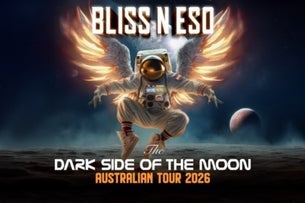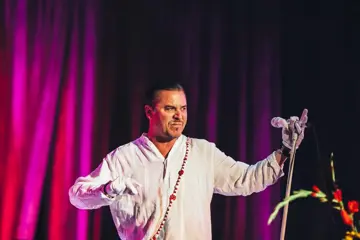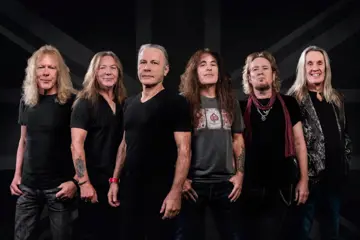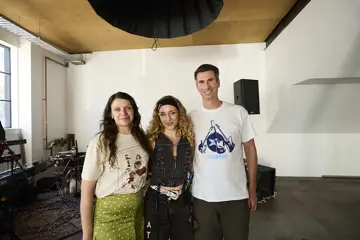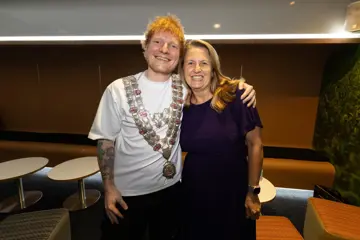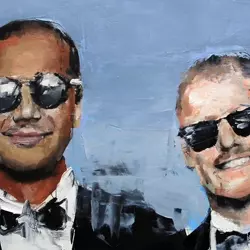 Horrorshow
Horrorshow"I've been doing a lot of thinking and reading about Australia's history in the last couple of years – way more than I ever did as a teenager because I was too preoccupied by my own ups and downs and shit.”
After four years of touring their second album, Inside Story, Horrorshow have finally released their third LP, King Amongst Many. The album has been embraced by the young hip hop duo's fanbase and received acclaim both for Solo's lyrics and producer Adit's track construction.
One of the more immediately striking tracks on the group's very accomplished record is Own Backyard. The song features Indigenous rapper Jimblah and deals with injustices faced by First Australians. Solo's verse is extremely well realised and he says he spent years on working out exactly what he wanted to say.
“The things that really spurred the track on was the book The Tall Man by Chloe Hooper, about the death of Cameron Doomadgee, and quite frankly it's fucking outrageous what happened in regard to the government and the police response to the community being upset about Doomadgee's death,” he says with conviction. “Learning more about that story and the injustice of it, and the fact that it happened in our very recent history – it's just not something that you hear people talk about or acknowledge very often. I also bought the book Blood On The Wattle by the historian Bruce Elder, which I bought in the gift shop of the airport at Alice Springs when we went out there and it was this physical object that came back with me from that journey. It goes through all the different massacres that have happened to Indigenous people throughout the early history of Australia. I was just reading page after page of this stuff and realising how atrocious these parts of our history are, and I really wanted to write something that was going to acknowledge that and ask the question, What are we gonna do about it now? How are we going to take responsibility?
Don't miss a beat with our FREE daily newsletter
“I think it's really important that as Australians we stop pushing the history and reality of what's happening now in Indigenous communities out of our minds,” he says after careful consideration. “We need to start to talk and acknowledge and deal with these issues now. They're our issues and I don't support people who consider it something from the past, or something that they have nothing to do with or take no responsibility for. We all need to care about it as Australians, and I think there are a lot of Australians out there that really do care about this stuff, who want to see improvements and want to see justice for our Indigenous people.”
As a white Australian, Solo was very conscious of not trying to be seen as talking on behalf of the Indigenous community, but offering his own perspectives. He mentions very specific examples, such as the death of TJ Hickey in 2004, which has certainly not been forgotten by Indigenous Australians or the wider community in Redfern, but it's been a long time since there's been any discussion about this in the mainstream media. He was very careful to be respectful to Indigenous Australians and their culture, and part of that included inviting an Indigenous rapper to contribute their own perspective to the track.
“I also knew that given my platform and my position in Horrorshow I had an opportunity to write something that could really get into people's brains out there, or provide an avenue for people out there who feel like I do to have their voice heard and their perspective included in the discussion. I really wanted to tackle all of this stuff on a track, and I really wanted to get an Indigenous MC on there for their perspective and when I hooked up with Jimblah I knew that he was the one to do it, because he has such a powerful voice and presence and he speaks about these issues so beautifully.”
Solo says he's well aware of his position as a musician, and he's under no illusions that a song can solve a problem or create world peace overnight, but he says that music and especially hip hop is a very powerful starting point for a discussion and a trading of perspectives.
“While I see a lot of my younger contemporaries making hip hop and sticking to safer topics and wanting to make party tracks, I see myself as having something of a responsibility in bringing some of these issues to light, and to speak on them in a public way. I think that's a really powerful tool in working out what we're going to do next.”

